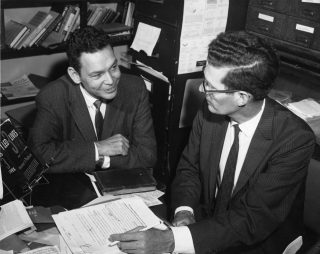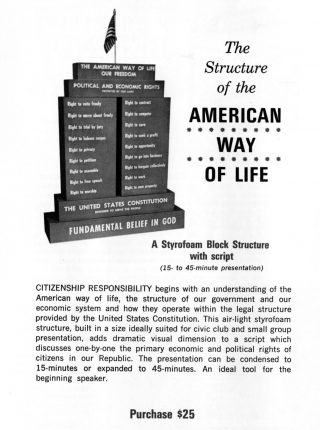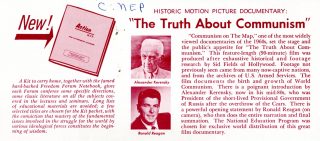[et_pb_section bb_built=”1″][et_pb_row][et_pb_column type=”4_4″][et_pb_text _builder_version=”3.0.75″ background_layout=”light” text_line_height=”1.4em” border_style=”solid”]
This post was written by Heath Robinson, the Project Archivist for the James D. Bales Papers project at the University of Arkansas Libraries Special Collections.
James D. Bales (1915-1995), was an author and professor of Bible and Theology at Harding University for about forty years. Bales was also part of the National Education Program, an anti-communist group based in Searcy, Arkansas, and he produced much of the organizations written materials. The James D. Bales Papers (MC 1256) opened for research in September 2017. Processed with the aid of a grant by the National Historic Publications & Records Commission (NHPRC), the collection will be of particular use to historians, political scientists, and religious scholars.

The National Education Program (NEP) was founded to espouse the ideals of Americanism in accordance to its founder, George S. Benson. According to NEP sources, the program was founded in 1936 to “revive the spirit of American self-reliance.” At the height of NEP activity, millions of people were exposed to its message through over four thousand newspaper articles, a mailing list of nearly fifty thousand, three hundred and sixty eight radio stations, hundreds of lectures and thousands of theaters. The Program was staunchly for Christianity, free enterprise, and the United States Constitution and dubbed these beliefs “Americanism.” The NEP produced material that promoted these ideals and opposed atheism, evolution, communism, and socialism.

The NEP promoted Americanism with a wide variety of media. Two weekly editorials and The National Program Letter, a monthly newsletter, were put out by Dr. George S. Benson. Several members of the NEP toured the country tirelessly delivering speeches. Every April, people from across the nation gathered at Harding University for the Freedom Forum which provided workshops on teaching Americanism. Lastly, the NEP produced a television program, The American Adventure, in addition to animated and live action films. Animated shorts were shown in thousands of theaters across the nation and included titles such as Make Mine Freedom and Meet King Joe. They produced over a dozen educational live action films including What Can We Do about It? – The Threat of Communism and Communism on the Map.
Communism on the Map was perhaps the NEP’s most controversial filmstrip. The film depicted the world being taken over by communists by showing country after country turning red on map of the world. Prominent socialist Norman Thomas denounced the film as “paranoid.” Additionally, as L. Edward Hicks recounts in his biography of Benson, Sometimes in the Wrong, but Never in Doubt, a showing at the University of Washington prompted nearly one hundred faculty members to question the factual basis of the film.

Bales contributed to the research for several of these films in addition to suggesting several film ideas to Benson. Bales also often responded to critiques of the National Education Program and their media output.
The James D. Bales Papers contains materials regarding a number NEP films and other products mentioned earlier including promotional materials and commentary. Of particular note are files of correspondence between Bales and those involved closely in the creation of films such as NEP heads George Benson and Clifton Ganus, as well as performers Herbert Philbrick and then-actor, Ronald Reagan. The National Education Program does not seem to have produced any more films after the 1970s and appears to have become in active sometime around 1990.
[/et_pb_text][/et_pb_column][/et_pb_row][/et_pb_section]
